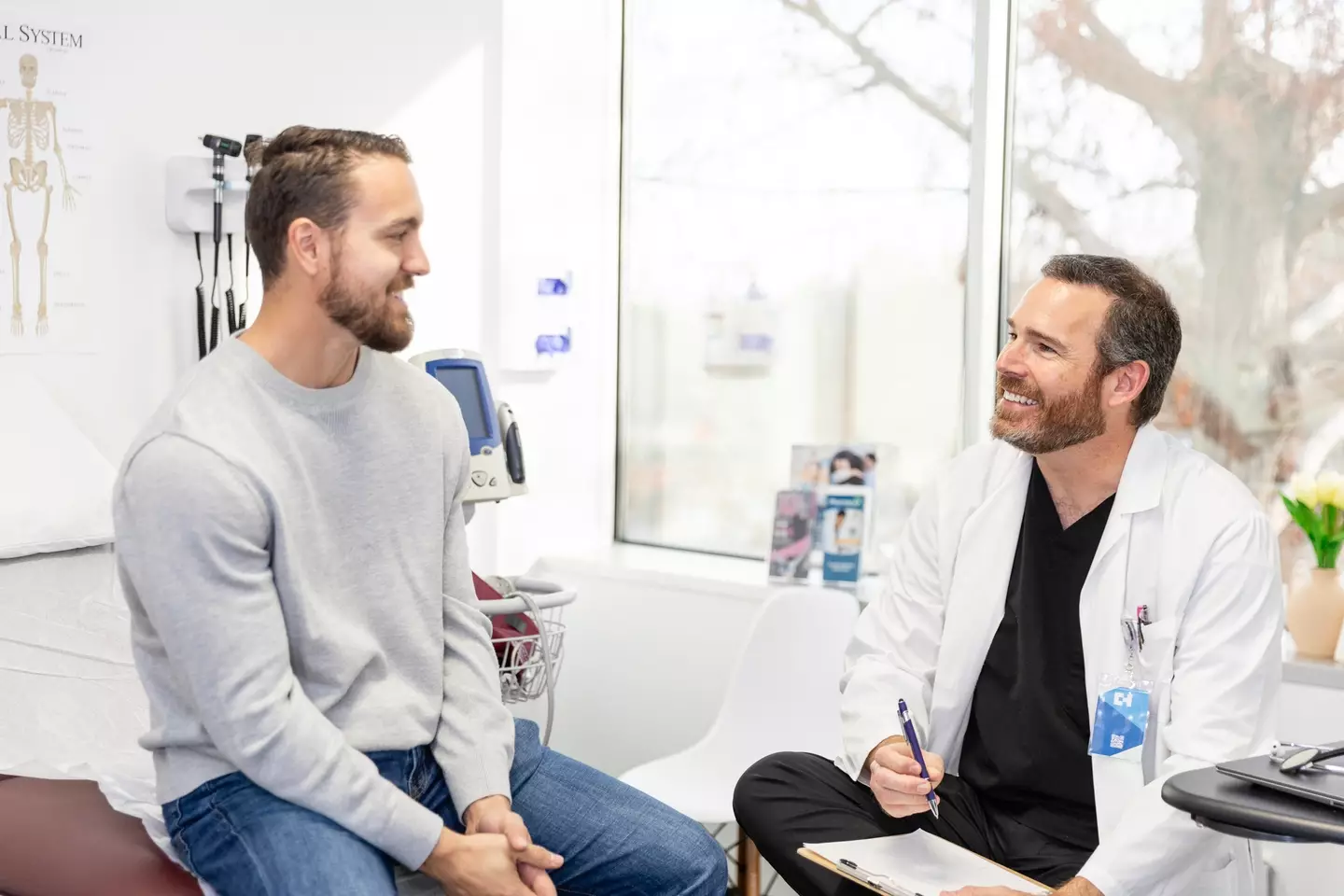
Here are the signs that young people should look out for to catch colon cancer early, according to doctors.
In 2023, research from The American Cancer Society revealed that 20 percent of colorectal cancer cases in 2019 were discovered in those under 55 years old in the US - which is an increase from 1995, where only 11 percent were diagnosed.
It is believed that the rates of advanced disease has also increased by 3 percent, with Haddon Pantel, a Yale colorectal surgeon, saying that there's 'a clear uptick in colorectal cancer in younger generations', according to Yale Medicine.

Advert
With this increase, doctors believe that there may be up to 53,000 deaths as a result of colon cancer in the US alone this year, The American Cancer Society reports.
For men, it's the third-leading cause of cancer-related deaths, while for women, it's a bit higher - being the second most common cause of cancer-related deaths.
Fortunately, there are some tell-tale signs of colon cancer that you and I could look out for, according to the experts.
1. Weight loss
A 2024 study has revealed that around 15 percent of people under the age of 55 had told researchers that they'd lost their appetite between four and six months before being diagnosed.
Advert
If you are working out or dieting then it is normal to shed some pounds here and there, however, if you're losing five percent of your body weight over six months, then you should probably go for a check-up.

2. Blood in your stool
If while wiping your bottom after using the toilet, you discover blood on your toilet paper, then you should seek medical attention.
Advert
Researchers discovered that almost half of all those who were diagnosed with colon cancer had rectal bleeding prior to their diagnosis.
Speaking to Self, gastrointestinal oncologist Dr Andrea Cercek, of the Memorial Sloan Kettering Cancer Center in New York, said: “Blood from those tumors has a shorter distance to travel, so it comes out bright red, while blood that’s been in the digestive tract for a while can look almost black.”
While it might not be colon cancer, however, anal bleeding should be seen to by a doctor immediately.
3. Stomach cramps
Specifically persistent stomach cramps would usually occur around the times you'd eat is another potential symptom of colorectal cancer, but, of course, the pain could be also something like irritable bowel syndrome (IBS) or menstrual cramping.
Advert
Director of the Gastrointestinal Cancer Risk and Prevention Clinic at the University of Chicago Medicine, Sonia Kupfer, explained to the publication when you should seek help.
She said: “If it’s abdominal pain that’s new or different from what you’ve experienced before, that’s a reason to see your doctor.”

4. Fatigue
Of those who took part in the 2024 study, eight percent experienced fatigue in the months leading up to their diagnosis.
Advert
As per The New York Post, extreme fatigue could also be a result of tumor-related hormones depleting your energy.
5. Changes to your toilet activities
Yes, colorectal cancer can even change the way you poop, according to Tiago Biachi, a GI medical oncologist.
He explained to Self: “Often, a tumor in your colon or rectum will—like a clog in a pipe—change the way you poop.
Advert
"That may mean frequent constipation, diarrhea, or both. In other cases, people don’t feel ’empty’ after going, or they notice their poop is looking different than before [slimmer than usual for example]."
Dr Michael Cecchini tells HuffPost that 'thin stools' are also common amongst cancer patients.
Another thing to keep an eye out for, according to Dr Kupfer, is whether your digestive issues are also occurring alongside other symptoms, like fatigue, blood in your stool etc.

6. Anemia
Bleeding from tumors in your colon can lead to anemia in younger people, according to the doctors.
Advert
Anemia occurs when there isn't enough your red blood cells in your blood system, which, in turn, helps support your energy levels, as well as cognitive function and immune response.
Symptoms of anemia can be dizziness, shortness of breath and headaches. Your skin may also take on a pale or yellowish look, according to Mayo Clinic.
In order to detect colon cancer, you must undergo a colonoscopy, which involves a thin camera being inserted into your rectum.
According to UC Davis Health, in 2021, recommendations for colon cancer screenings have changed to 45 years old rather than 50, however, they recommend asking for a screening if you show symptoms of colon cancer.
Topics: Cancer, Health, US News, Colon cancer